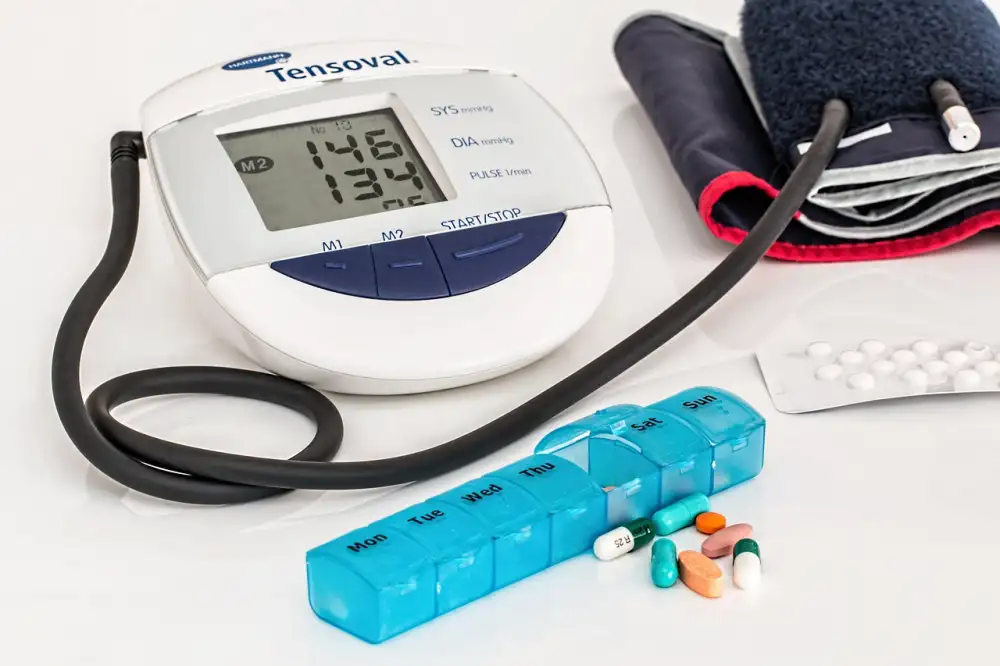Lyme Disease and Weight Gain: Understanding the Link for Better Health

- Understanding the Link Between Lyme Disease and Weight Gain
- Factors Contributing to Weight Gain in Lyme Disease Patients
- Impact of Lyme Disease Symptoms on Weight Management
- Strategies for Managing Weight Gain in Individuals with Lyme Disease
- Importance of Seeking Medical Advice for Weight Changes in Lyme Disease
Lyme disease is a bacterial infection transmitted through tick bites, caused by the bacterium Borrelia burgdorferi. While commonly known for its physical symptoms such as fever, fatigue, and joint pain, Lyme disease can also lead to weight gain in some individuals. The link between Lyme disease and weight gain is complex and often overlooked, but understanding this connection is crucial for better health outcomes.
Understanding the Link Between Lyme Disease and Weight Gain
Understanding the link between Lyme disease and weight gain is crucial for effective management. Research suggests that Lyme disease can disrupt the body's metabolic processes, leading to hormonal imbalances and inflammation, which can contribute to weight gain. Additionally, the fatigue and muscle pain associated with Lyme disease may reduce physical activity levels, further impacting weight. It's important for individuals with Lyme disease to work closely with healthcare providers to address these factors and maintain a healthy weight.
Factors Contributing to Weight Gain in Lyme Disease Patients
1. Inflammation: Lyme disease can lead to chronic inflammation in the body, which may disrupt metabolism and contribute to weight gain.
2. Hormonal Imbalance: The infection can affect hormone levels, such as thyroid hormones, which play a crucial role in regulating metabolism and weight.
3. Medication Side Effects: Some medications used to treat Lyme disease may have side effects like weight gain.
4. Reduced Physical Activity: Fatigue and muscle pain associated with Lyme disease can limit physical activity, leading to weight gain.
5. Emotional Stress: Dealing with a chronic illness like Lyme disease can cause emotional stress, leading to emotional eating and weight gain.
Impact of Lyme Disease Symptoms on Weight Management
Lyme disease symptoms can have a significant impact on weight management. Fatigue, muscle pain, and joint stiffness may limit physical activity, leading to decreased calorie expenditure. Additionally, medications used to treat Lyme disease can sometimes cause weight gain as a side effect. Changes in appetite and digestive issues such as nausea or abdominal pain can also affect dietary habits and nutrient absorption, further complicating weight management for individuals with Lyme disease.
Strategies for Managing Weight Gain in Individuals with Lyme Disease
Individuals with Lyme Disease who experience weight gain may benefit from implementing strategies to manage their weight effectively. It is essential for these individuals to focus on a balanced and nutritious diet that supports their overall health and immune system. Incorporating whole foods, such as fruits, vegetables, lean proteins, and whole grains, can help maintain a healthy weight.
Regular physical activity is also crucial in managing weight gain associated with Lyme Disease. Engaging in low-impact exercises like walking, swimming, or yoga can help improve metabolism and promote weight loss. It is important for individuals with Lyme Disease to consult with healthcare professionals or nutritionists to develop a personalized plan that suits their specific needs and limitations.
Additionally, keeping track of food intake and monitoring weight changes can provide valuable insights into the effectiveness of the chosen strategies. By staying consistent with healthy eating habits and exercise routines, individuals with Lyme Disease can better manage their weight gain and support their overall well-being.
Importance of Seeking Medical Advice for Weight Changes in Lyme Disease
It is crucial for individuals with Lyme disease experiencing weight changes to seek medical advice promptly. Sudden weight gain or loss can be a sign of underlying health issues or complications related to the disease. Medical professionals can conduct thorough evaluations to determine the cause of these changes and provide appropriate treatment. Ignoring fluctuations in weight could lead to further health complications, so seeking medical guidance is essential for managing overall well-being in Lyme disease patients.
Published: 15. 04. 2024
Category: Health



